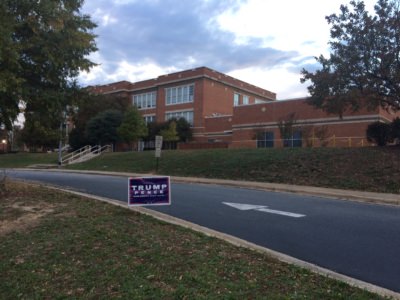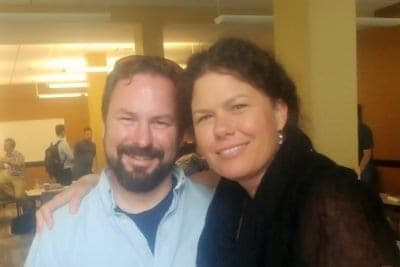
Evidence and analyses have piled up to bolster the case for a surge of initiatives to enhance North Carolina public schools. The ensuing weeks and months will pose a test of how the state’s democracy — its governance and its politics — will respond to the challenge.
North Carolina’s great education debate took a new turn with the release in mid-December of a 287-page report from think-tank consultants, led by WestEd of California, commissioned by Superior Court Judge David Lee, who presides over the long-running Leandro case. A month later, the judge signed a consent order with findings drawn largely from the consultants’ evaluation.
The WestEd report observed that North Carolina had brought about “substantial increases in students’ achievement from the early 1990s through the mid-2000s,” giving the state a national reputation “for educational innovation and effectiveness.” However, it noted declines in math and reading since 2013, and “achievement gaps have widened.”
While recognizing that some “education improvement efforts have continued,’’ the report said that “cutbacks that began during the recession after 2008, along with much deeper legislative cuts over the last few years, have eliminated or greatly reduced many of the programs that were put in place and have begun to undermine the quality and equity gains that were previously made.” Factor in economic and social shifts stemming from globalization, urbanization, and new technologies, and “the state now faces greater challenges than ever” in public education.
Also drawing on the WestEd evaluation plus its own research, the Public School Forum added its voice to the debate by releasing two reports this month: its five priority steps to implement Leandro and an update to its long-running analysis of local school finances. The top 10 most affluent counties spend $2,523 more per student in local funds on schools than the bottom 10 economically distressed counties, says the Forum, representing “the largest gap since we began tracking this figure in 1987.”
“Cuts to the state budget during the most recent Great Recession have yet to be restored to pre-recession spending levels, and districts across the state are struggling to meet their students’ needs,” the Forum declared, and added, “This has coincided with deep cuts to corporate and income taxes, which have not led to exceptional economic growth and have cost the state billions of dollars in revenue that could have gone towards funding our public schools.”
Earlier, the 19-member advisory commission appointed by Democratic Gov. Roy Cooper developed its own set of recommendations for advancing toward education goals identified in the court order. And Judge Lee has given lawyers representing state and local parties to the case until the end of March to present him with ideas for what can be accomplished in 2020.
Getting Leandro re-geared and moving forward was the hard part. Now comes the harder part: converting evidence and analyses into real action. To do so will require leadership and negotiating skills in a multi-tiered education governance structure and in a political environment of a partisan divide not only among office-holders but also within the electorate. The case tests all three branches of state government — judicial, legislative and executive — and it tests voters in their attention to public education in choosing candidates in a heatedly competitive election year.
Even as he found the need for “considerable, systemic work’’ in public education budgeting and policy-making, Judge Lee inserted a significant observation into his findings: “North Carolina has tremendous assets to draw upon in undertaking the systemic work of educating its school children, including a strong state economy, a deep and long-standing commitment to public education to support the social and economic welfare of its citizens and an engaged business community that sees the value and economic benefits of the public education system.”
Indeed, North Carolina is not a weak state lacking adequate resources. Even with its lingering poverty and inequalities among people and places, the state has, as the judge observed, “tremendous assets’’ of both economic and social capital. Who will step up to deploy North Carolina’s assets and exert its strengths to lift up children, teenagers, and young adults to contribute to America’s economic and civic life?
Recommended reading



